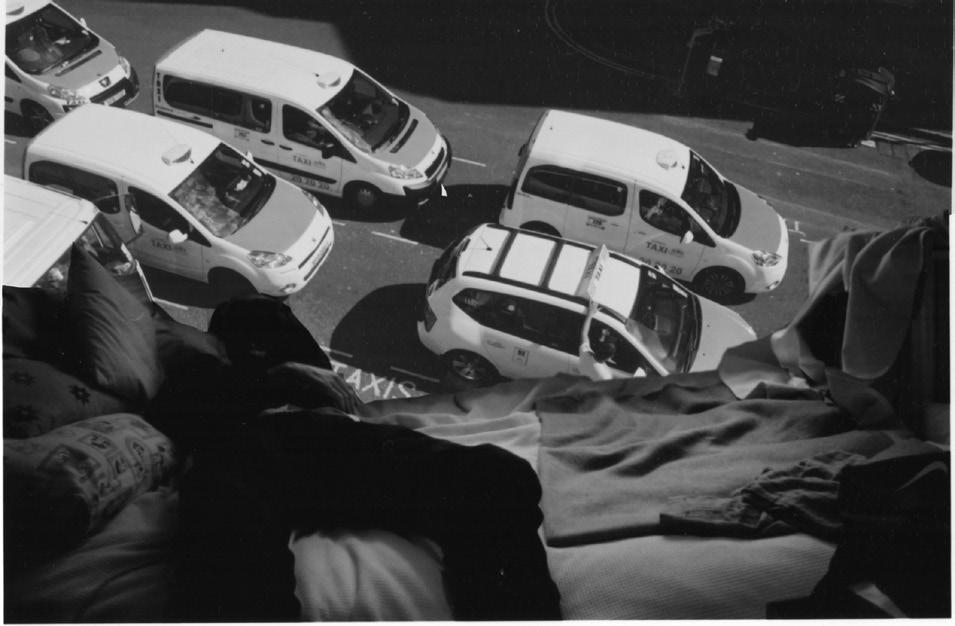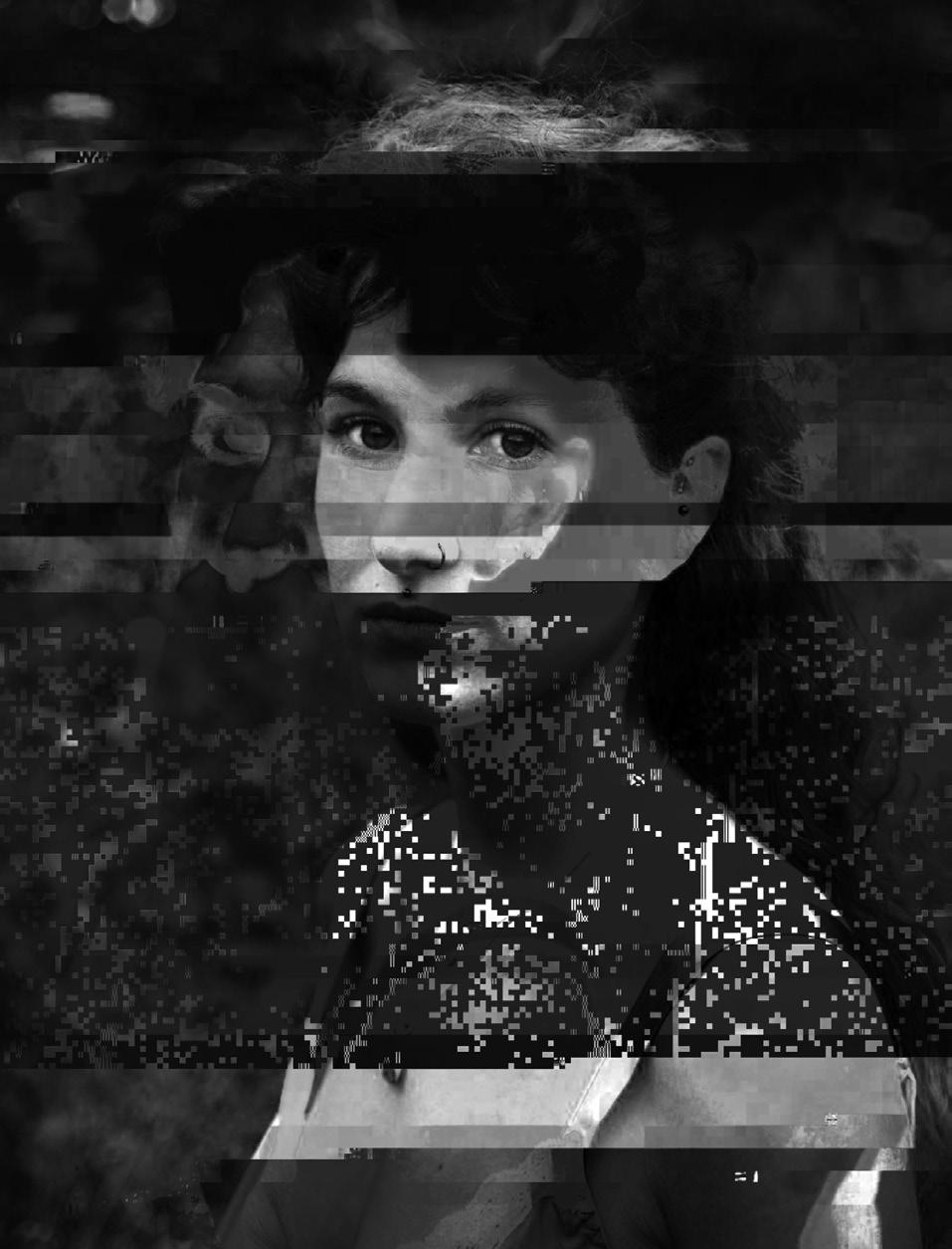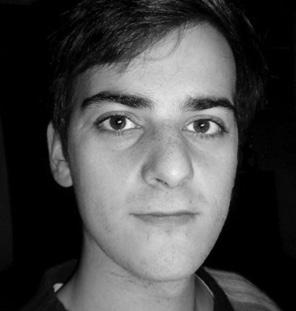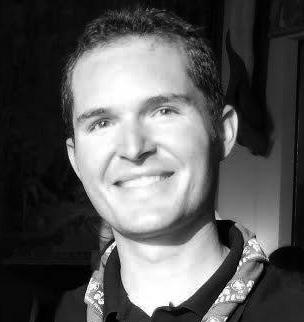
13 minute read
Bad Faith: The Shortcomings of the Catholic Doctrine on Interreligious Dialogue
from Mozaik 34/2014 Bridging our Differences: Learning Skills of Intercultural Dialogue Together PART 1
by WSCF-Europe
Rui Coelho
It’s hard to watch the news today without seeing reports on religious violence. Despite the political reasons behind the intensive media coverage of certain extremist Islamic groups like Al-Qaeda or ISIS, it’s impossible to deny that across the history of mankind, faith has been the reason for many wars and suffering.
Advertisement
This may be unexpected, especially since almost all religious traditions advocate for goodwill, empathy and solidarity, but it’s the reality. As the Swiss Catholic theologian Hans Kung affirms, “There will be no peace among the nations without peace among the religions. There will be no peace among the religions without dialogue among the religions”. That’s why, in the context of a violent world, it is important to take decisive steps on interreligious dialogue.
This article explores the Catholic doctrine on interreligious dialogue with the aim of exposing how its inherent colonialist logic may severely obstruct any attempts to establish mutual understanding and good relations between different faith traditions.
Interreligious dialogue is the practice that tries to build positive, cooperative and constructive interactions between people of different religions or beliefs. The main goal of these initiatives is not to convince other groups of the superiority of our faith nor to change our beliefs in order to find common ground with them (what is called syncretism). We can only talk about interreligious dialogue when the aim of the interactions is to acheive acceptance among the participants. In this context, acceptance must be understood as a sum of good relations and mutual understanding.
The history of interreligious dialogue is almost as old as religion itself. Since ancient times, there have been many men willing to engage peacefully with people from different backgrounds and learn from them. One example of this was the Emperor Akbar the Great who in the 16th century adopted a policy of religious tolerance and pluralism for the Christians, Muslims, Hindus and Sikhs in Mughal India.
An historical mark on the development of interreligious dialogue was the creation, in 1893, of the Parliament of the World’s Religions. This attempt to create a global dialogue of faiths resulted in a series of meetings of representatives of different churches and religious traditions, the last one in 2009, in Australia.
Since World War II efforts have intensified, especially among Abrahamic religions (Judaism, Christianism and Islam). In 1965 Nostra Aetate was published as part of the Second Vatican Council documents. This text, which we will look into later, established the Catholic Church’s new position on interreligious dialogue. It was also during the 1960s that, motivated by the struggles of the civil rights movements, American religious institutions began a fruitful dialogue.


The first World Day of Prayer for Peace was organized by Pope John Paul II and took place in Assisi, in 1986. Representatives of several Christian denominations (Orthodox, Anglican, Baptist, Lutheran, Mennonite, etc.), as well as Islam, Hinduism, Judaism, Sikhism, Buddhism and others, gathered in the Italian town to pray together for peace. Since this historic event, two similar World Days of Prayer for Peace have taken place (1993 and 2002).
Other initiatives and meetings have been organized by different organizations and interreligious dialogue has become a part of the everyday reality of religious institutions across the globe.
The Catholic position on this, as stated on Nostra Aetate, is that since the various religions attempt to answer humankind’s existential questions on the moral good and the meaning of life, they are all valuable and all converge around the Truth. The document states:
“The Catholic Church rejects nothing that is true and holy in these religions. She regards with sincere reverence those ways of conduct and of life, those precepts and teachings which, though differing in many aspects from the ones she holds and sets forth, nonetheless often reflect a ray of that Truth which enlightens all men.”
This recognition of the value of other religious manifestations opens the door to the construction of good relations among faiths. The same text exhorts the Catholic believers to engage in “dialogue and collaboration with the followers of other religions”. These interactions have as their main goals the effort to “recognize, preserve and promote” the best cultural, spiritual and moral values “found among these men”, and to “promote together for the benefit of all mankind social justice and moral welfare, as well as peace and freedom”.
Another consequence of the recognition of the value of other beliefs is the reproval of “any theory or practice that leads to discrimination between man and man or people and people”, especially those advocating religious intolerance and conflict.
Later, in 1974, the Vatican’s Commission on Interreligious Relations published the Guidelines and Suggestions for Implementing the Conciliar Declaration Nostra Aetate. The document maintains the same spirit of good-will and suggests fraternal dialogue, doctrinal research, prayer in common and even common social action “in the context of a search for social justice and for peace”.

The apparent openness and good intentions of these documents contrast with the strong christocentric position stated on Lumen Gentium (another text of the Second Vatican Council). It defends the doctrine that Christ is the only saviour and mediator between humanity and God. Therefore, no one can reach spiritual bliss or salvation if not through the Church, here presented as the only gateway to Christ. The same text even advocates that “all men are called to belong to the new people of God [the Church]”.
Simillar reasoning is found in the Catecism of the Catholic Church, the main compilation of Catholic doctrine compiled by Pope John Paul II, in 1992. It uses John 14:6, where Jesus says “I am the way, and the truth, and the life”, to declare that Christ is the only“mediator and the way of salvation” and, so, "outside the Church there is no salvation".

This is in direct contradiction with the affirmation, in the same book, that “the plan of salvation also includes those who acknowledge the Creator”, namely Jews and Muslims. Taking this quotation as having higher authority than the previous ones, believers of Judaism and Islam may have a chance to attain salvation, by virtue of having shared spiritual roots with Christianity.
Unfortunately, the same inconsistency doesn’t apply to non-Abrahamic religions. Their spiritual traditions, some of them even older than the Christian faith, are said to be a “search among shadows and images, for the God who is unknown” which benefits the believers by acting on their hearts “as a preparation for the Gospel”.
Instead of an openness to true dialogue and mutual understanding, this kind of reasoning is symptomatic of a colonialist worldview. The colonial process was a movement of European expansionism. First by the means of sending missionaries and traders, and later through conquest and military occupation, the European powers spread their own cultural perspectives as well as their social, political and economic models all over the world.
If the main material consequence of that process was the universalization of the capitalist economic system, the colonialist experience had also great implications for how we think about the world. It brought about the hegemony of western epistemology and, consequently, the subjugation or extinction of other worldviews and ways of thinking. This resulted in a cultural impoverishment of humanity.
Boaventura Sousa Santos, a Portuguese sociologist, explores how the colonialist mentality took root on the human psique, giving birth to what the author calls “abysmal thought”. He describes it as “a system of visible and invisible divisions”. The divisions are established across lines which divide the social reality in two distinct universes: the universe of “this side of the line” and that of “the other side of the line”. Being exterior to our universe, the “other side of the line” is perceived with hostility and faced as an enemy.
To sum up, abysmal thought is a pre-reflexive presupposition turned into a category of our perception that makes us perceive every piece of empirical data according to hierarchical dichotomies.
By this mentality, everything is divided in two opposing sides where one should be extended and universalized while the other is to be subordinated or even extinguished. Man-woman, heterosexual-homosexual, urban-rural and left-right (or right-left, depending on who is talking) are some of the contemporary categories that embody this kind of dualistic and hierarchical mindset.
The abysmal thought is visibly present in the Catholic doctrine on interreligious dialogue. It’s statement that Christ is the only way, along with the belief that there is no salvation outside the Church, makes a radical distinction between those “on this side of the line”, the saved ones, and those “on the other side of the line” who are wrong and can hardly hope for anything good on the after-life unless they let themselves be absorbed into Christianity.
If every other religion is undoubtedly erroneous, then there is little to learn from them and the point of interreligious dialogue is, at best, to keep the disagreement peaceful and, at worst, to convert our interlocutors, furthering the cultural homogenization and impoverishment that is the heart of the colonialist endeavour.
Despite the good intentions expressed by the Council through Nostra Aetate, the Catholic Church still advocates a position based on bad faith and doctrinal arrogance which threatens the efforts of interreligious dialogue and, consequently, world peace. �
Rui Coelho is a member of the Movimento Católico de Estudantes, the Portuguese chapter of the International Young Catholic Students. He has a degree in Political Science from the School of Social and Political Sciences, University of Lisbon and is currently writing a thesis about Lisbon’s new social movements, for his master’s degree in Sociology.


James Jackson: So Thomas, before we begin, how about you can tell me a bit about yourself? Where are you from?
I am from France, born in Sarlat, a famously historic place where people have been living for a very long time.
So what is your family background?
Both my parents felt a spiritual need for something more than Catholicism - I don’t know what was missing, not something pragmatic but just a feeling. They both felt this need separately before they met in a providential way; they were looking for the same book in a small bookshop and afterwards started dating. After they got married they investigated Buddhism, Judaism, and Protestantism trying to find their own way. My father travelled around the Maghreb (Morocco, Algeria, Tunisia and Libya). At one point my father heard about a very famous North African master called Sheikh Khaled Bentounes, master of Tariqa Alawiyya, a Sufi religious organisation. He went to Paris to see him speak at a conference and he had a spiritual conversion experience; he felt this was his “way” so, in 1987 both my parents became Muslim and part of TariqaAlawiyya, when I was 1 year old, so I was brought up totally in the spiritual Sufi tradition. They follow the basic rules of Islam but they still look French. They came to Islam through Sufism, the opposite of most people, who usually discover Sufism after already being Muslim. Generally in Europe people born into Islamic cultures focus on the cultural aspects rather than the spiritual. Sufism is a mystical Sunni tradition.
Nowadays, a lot of people come to Islam because they feel lost in their life and they want the strict rules of Islam to rebuild their life thought the rules, and they forget the rules and traditions of their own culture. My parents are the exact opposite. My parents wanted something totally different. They wanted to find the deepest feeling of the meaning of life, more spiri- tual and really alive - as there was a real master in front of them when they converted. This is like how people react to the Dalai Lama. There is something different about him. God gives everyone different skills some people are good at science, mathematics, etc.; personally I’m good at understanding people, that’s my gift, I’m bad with computers for example.
And so to what degree do you practice? You drink alcohol right?
In Sufism people don’t drink. From my personal perspective, drinking one glass doesn’t matter, as long as you have your conscience, because you have to be responsible for all your life. God gave you consciousness, so you have to keep it. Drunkenness makes you irresponsible and you must always be responsible to god, that’s why it’s forbidden. Everything that makes you lose your mind is forbidden. So in my personal perspective it’s not really forbidden to have a drink but to be drunk because you lose your consciousness.
I was never a big drinker before I got into Sufism more deeply when I was 21. I was thinking about life deeply before that, everybody called me a philosopher, so I felt like I wanted to do it more deeply, and I’m still trying!
I was educated in a spiritual way, and so when I go to Buddhist people or Sikh people I feel at home, I feel the same spirituality as them, we have the same values, mainly fraternité, caring about human beings (I have also felt this at a Buddhist/Dharma conference in the UK). We share compassion towards animals, killing them in a way that’s respectful of their way of life. Halal, by the way, is not just about killing animals, but it’s about living a righteous life.
From my perspective, religions are all one piece of the same puzzle. In every piece we have the same puzzle but they have differently developed parts. So for Sikhism, there is a great emphasis on compassion. I’ve personally never heard of as much compassion in Islam as I have in Sikhism. This helped me discover that when you see another religion you are able to know more about the subject that is developing more than in your own religion. So if I stayed only with Sufis I wouldn’t have heard about compassion in the same way. However I should point out that a real Sufi is a saint, someone who is very very close to God; I am just a Fakir (someone desiring knowledge of God).
How do believers from traditional Muslim cultures like North Africa react to your unorthodox views?
The good thing is I don’t look like a Muslim. I can talk to a Muslim guy and not tell him I’m a Muslim. Sometimes I don’t tell them because they might not understand the journey I’m on, and might not be sympathetic because I don’t pray. Sufism is a real way of living, not just a set of rules. I grew up outside of a Muslim community so I have the spiritual way but not the cultural or legal way. So spiritual people understand me but it’s problematic for more practical legalistic people. God will give the authorization to pray when I will be ready to do it. Prayer is not just the practice, it is something more deep. One is allowed to do something when you’re ready, that’s a typical Sufi attitude. Sufis don’t push you, but try to help you on your way. Sufism is about a link between you and God, the Sheik is just there to help.
And what about prayer?
My main goal is to practice the law more. With your legs, you need both of them to walk; in the same way you need both law and spirituality to serve God. God gives you what you need in the right place at the right time. When I said to my master I need to go forward religiously, he said to keep going on my path. This July he is allowing me to go on a spiritual retreat.

Do you have a particular place of worship in London? I take it you don’t go to Finsbury Park mosque (a famous fundamentalist mosque).
I don’t go to the Mosque because I’m too strange for them there because I’m white and into interfaith spirituality.
So where does Sufism come from? Give me a bit of history.
It has been around since the beginning of Islam, and it gained another form in the 16th Century. Sufism was practiced in Turkey and in the Ottoman Empire, in Senegal and in North Africa. The famous Persian poet Rumi was Sufi.
So how do you see interfaith work? Is it a social exercise or a spiritual one for you?
For me, it is definitely spiritual, because if you agree on the spiritual then you will manage all other topics. Let’s say we are in a deep conversation with Jewish people, then the superficial things won’t matter if you share a serious and helpful common point after, so maybe Kosher/ Halal won’t seem like such a big difference afterwards. We should try to share our common points, to learn about the richness of our differences. The real richness is not in the common points, but the differences. First we must share the common point to create an atmosphere of brotherhood, and afterwards we then must learn about the differences.
This is the real meaning of the v 13 Surat 49 (Yusuf Ali translation):
"O mankind! We created you from a single (pair) of a male and a female, and made you into nations and tribes, that ye may know each other (not that ye may despise (each other). Verily the most honoured of you in the sight of Allah is (he who is) the most righteous of you. And Allah has full knowledge and is well acquainted (with all things)."
If everyone was the same then we wouldn’t learn from each other. This is true of man and woman as well, like Ying and Yang we share characteristics, but we need others to complete ourselves. The “pure/righteous” part encourages you to go through the religion into the spirituality, and then God will love you.
This verse isn’t pushing Islam above all religions, it just wants to push you through the religion and through others. You have to respect others, because all nations and tribes are created by God, this is what I would say to a terrorist: look in your Quran, you must respect everyone, Germans, Americans Muslims, and Protestants...
Practice not just the law but also the spirit, give food to your soul. If you do this, Allah will love you.
What about people of no religion?
It’s not a problem, I can learn from everybody. Religion first of all is a link between one physical person and one spiritual entity, between cult and culture in French. Everything someone does is cult in French, they don’t talk about anybody else, it’s the private relationship with God, but spirit is most importantly spirituality. We think of religion as purely social but the individual side has been forgotten, that is culture not religion, like drinking beer in Britain is culture it has nothing to do with God.
Can a non-believer have a relationship with God?
I don’t know, everyone has to find their own answer but God will still care for them, but the more you care about him the more he will care about you. “If you walk 1 step to God, he will run 2 to you,” it says something like that in the Quran.
It’s up to each individual person. Personally, I’m not here to judge someone, I’m here to learn from them. I know for me spirituality is useful. If someone doesn’t find that, that’s not a problem for me as long they’re a good person, they can still be my friend and share my hospitality. Sheik Khaled said he will give his advice to anyone, no problem, Muslim or not. �
Thomas Gilet was born to Fremch Muslim parents, and is currently involved with the Muslim Scouts of France. He works for interfaith activism and awareness for the European Interfaith Youth Network.






